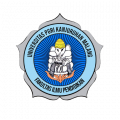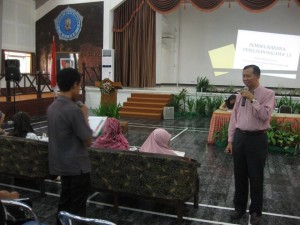The 2013 curriculum is a new curriculum implemented by the government to replace the KTSP which has been in force for more than 6 years. The 2013 Curriculum came into trial in 2013 by making some schools as ‘experimental schools’. In 2014, the 2013 Curriculum has been applied in Grade VII and VIII for Junior High School level and for Senior high school in Class X and XI. It is expected that in 2015 the new curriculum has been implemented at all levels of education. The main purpose of developing the 2013 curriculum is to create Indonesian people who are productive, creative, innovative, and effective by strengthening three aspects evaluation: knowledge, skills, and attitude.
In the 2013 Curriculum, some teaching materials are added and simplified. The simplified materials are for example Bahasa Indonesia, IPS, PPKn subjects etc. Some materials for some subjects are also added such as for Mathematics subject. All subject materials especially mathematics are adapted to international standards. The government expects that there is a balance between education implemented in Indonesia and overseas.
Considering the importance of 2013 curriculum implementation in schools, it is crucial for teacher education providers to know and understand the 2013 curriculum and its practical application in schools. Therefore, Mathematics Education Department as one of the departments in the Faculty of Teacher Training and Education, University of Kanjuruhan Malang will hold a general lecture under the theme “The 2013 Curriculum Answers Challenges in the Globalization Era” with Dr. Abdurrahman As’ari, M.Pd., M.A. as the keynote speaker on Saturday February 21, 2015.
It is targeted that 100 participants participate in the event which include lecturers and students, with details 20 students from 2011 class, 21 students from 2012 class, 20 students from 2013 class and 19 students from 2014 class. The main goal of the activity is to get an overview of the 2013 curriculum application in secondary school, so it will be useful for the continuation of lecturers’ and students’ activities which involve secondary schools.
This event got its success. It was shown from the participants’ responses. They asked many questions about the 2013 curriculum. The speaker also explained that the 2013 curriculum is basically an improvement of the previous curriculum, KTSP. The core competences in the 2013 Curriculum are not only derived from core competence on knowledge aspect but also skills and attitude aspects. For this reason, students are expected to be able to distinguish between the two curricula when they take PPL II course.
(ula & fandi)

